One of the most recorded bass players in music history tells FBPO all about the sessions, life in the studio and life on the road!
Exclusive interview with FBPO’s Jon Liebman
October 19, 2009
Chuck Rainey is one of the most recorded bass players in music history. He has toured and/or recorded with King Curtis, Sam Cooke, Etta James, the original Coasters, Jackie Wilson, Harry Belafonte, Al Kooper, the Supremes, Labelle, Aretha Franklin, Roberta Flack, Quincy Jones, Steely Dan and countless others. Chuck’s bass could also be heard on the soundtracks of many motion pictures, television shows and radio and TV commercials.
Mr. Rainey is the recipient of numerous awards from Bass Player magazine, New York Bass Collective, Downbeat and Playboy magazines and other organizations. As an educator, Chuck is the author of several music textbooks and educational videos and has developed bass curricula for the Musicians’ Institute/BIT and Dick Grove Music Workshops. Few bass players enjoy more legendary honor, prestige, fame and influence in the music industry today.
FBPO: I understand you played several instruments before discovering the bass. How did you get started as a musician and what was the sequence of events that led to you becoming a bass player?
CR: I began with piano lessons when I was around five years old, then the viola at nine. I took up the trumpet at age eleven and played it consistently until my college years, when I changed to baritone horn.
My music was interrupted by active duty obligations in the army after high school. While I was away, my bunkmate showed me how to finger three chords on his guitar. When I returned home, I was granted a music scholarship, where I continued my music as a brass major. When I picked up the guitar again, I found it was becoming my main instrument. As I got more into it, I noticed I was playing mostly single-line patters, which steered me to wanting to play the electric bass.
FBPO: Which school offered you the music scholarship?
CR: Lane College in Jackson, Tennessee. I left after two years, mainly because I began playing guitar professionally before beginning what would have been my third year.
FBPO: What kind of music did you most enjoy while growing up?
CR: As a trumpet player I enjoyed the classics and marching band. As a guitar player I enjoyed the rhythm & blues of the ‘50s and ‘60s. I also enjoyed the Doo-Wop era and sang bass in a local group.
FBPO: Once you settled on the bass, which bass players had the greatest influence on you?
CR: Jimmy Smith’s left hand on the organ – not his feet! He was playing the bass lines on the keyboard with his left hand. Most of the players I was hearing were playing the upright bass: Slam Stewart, Keter Betts, Charles Mingus, Milt Hinton, George Duvivier, Oscar Pettiford, Earl May, Richard Davis, Andy Simpkins and so on. They all influenced me in playing the bass, however Motown’s James Jamerson had my attention them most because the Motown artists were all over the airwaves and I had to learn all those songs and bass pass parts in order to survive as an on-the-scene, top-40 bass player.
FBPO: Would you say your career didn’t really take off until you arrived in New York in the early ’60s? Things really seemed to have picked up a lot of steam after you got there.
CR: That was the time of a new era in popular music, which began in the late ’50s with rock & roll and the sound and success of Motown’s pop/R&B feel. I came along with the likes of Eric Gale, Bernard Purdie, Bill LaVorgna, Donald McDonald, Paul Griffin and others.
FBPO: Talk about your move from New York to L.A. That must have been quite a culture shock, musically and otherwise.
CR: No culture shock at all – I was ready, willing and able. I had already been to LA in 1965 with King Curtis on the ’65 Beatles tour of the US. I vowed then and there to return, which I did six years later when Quincy Jones took me on board after doing two films and two recordings with him. I was definitely ready for LA and Hollywood!
FBPO: Your recording and performing credits read like a who’s who of the music industry’s most celebrated performers. Which of your musical experiences do you find particularly memorable or meaningful?
CR: All of my musical experiences are memorable and very meaningful, however Donny Hathaway, Quincy Jones, Bobbi Humphrey, Herbie Mann, Willie Bobo, Gary McFarland, Lena & Gabor, Steely Dan, The Jackson 5, Louie Armstrong, Aretha Franklin, The Beatles tour of ’65 and King Curtis stand out.
FBPO: You’ve recorded alongside so many truly great musicians in the studio. In addition to the ones you mentioned, Bernard Purdie, Eric Gale and Quincy Jones, you’ve also worked with Larry Carlton, Richard T and so many others. Were you able to appreciate at the time what a big deal that was, or did that not happen until you looked back on it afterwards?
CR: Other than being pleased and fortunate to work with and learn from really good and very special musicians, I did not realize what a big deal a lot of those recordings would come to be.
FBPO: You’ve accomplished more in your career than many musicians can even imagine. What musical feats would you still like to tackle that you haven’t done yet? What’s next for Chuck Rainey?
CR: Writing, recording and performing my interpretation and thoughts of popular music. I have done a bit in that area, learning as I experience the difference between being a “sideman” and a bandleader/artist. That’s next for Chuck Rainey!
FBPO: What kind of bass(es) are you playing right now?
CR: I have somewhat retired my original ’60 Fender Precision bass and currently play a reissue Fender ’57 bass. The earlier Fender P bass products have me riding the same horse I was riding when I first entered the music scene. I’ll also play my 5-string Spector/Euro bass when I need an instrument with a low B string.
FBPO: What do you like to do that’s not necessarily musically-oriented?
CR: That’s a difficult question to answer because music and rhythm are in and around everything I see, hear and feel.
I enjoy nature and spend as much time as I can at nature camps. For the last ten years, I have been an instructor at Victor Wooten’s Music/Nature camp outside of Nashville, Tennesee. I also attend Richard Cleveland’s “All Nature” camp in Tryon, North Carolina.
I enjoy the feel and sounds of the living things that are alive without human intervention. I love to dream, whether asleep or awake. I read metaphysical material and I write as a hobby, poems short science fiction stories and papers.
Related stories: Detroit Bass Fest, 2013
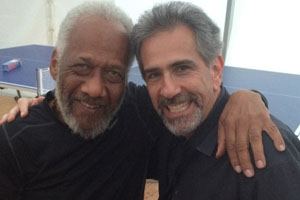
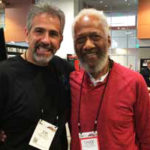

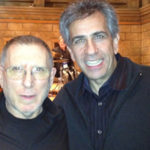

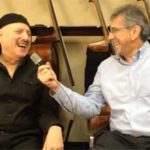
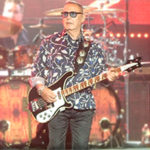

You know I just love me some Will Lee, Chuck Rainy, Jerry Jemmott , and James Jamerson.What can I say the bass is a beautiful instrument hooked up to some nice speakers and with any of the above four coming through it with Brobdingnagian, sound, Whew!” How magnanimous! ” These gents knows there way around a labyrinth of notes. And I love the way they coalesce them together. ..They can make a debacle sound good. All I have to say is fellows , keep it going, I love that sound coming through my.speakers.
Studied with Chuck at Dick Groves Studo City Ca. Hitched hike from Baltimore Md to Cali after meeting Chuck the Cresaders
Met Chuck Rainey at the NAMM show in Nashville in 2018 he worked with my trumpet player back in the 60’s, he is a great bass player and a great guy, Thanks Chuck for all the great bass lines though the years.
Chuck King